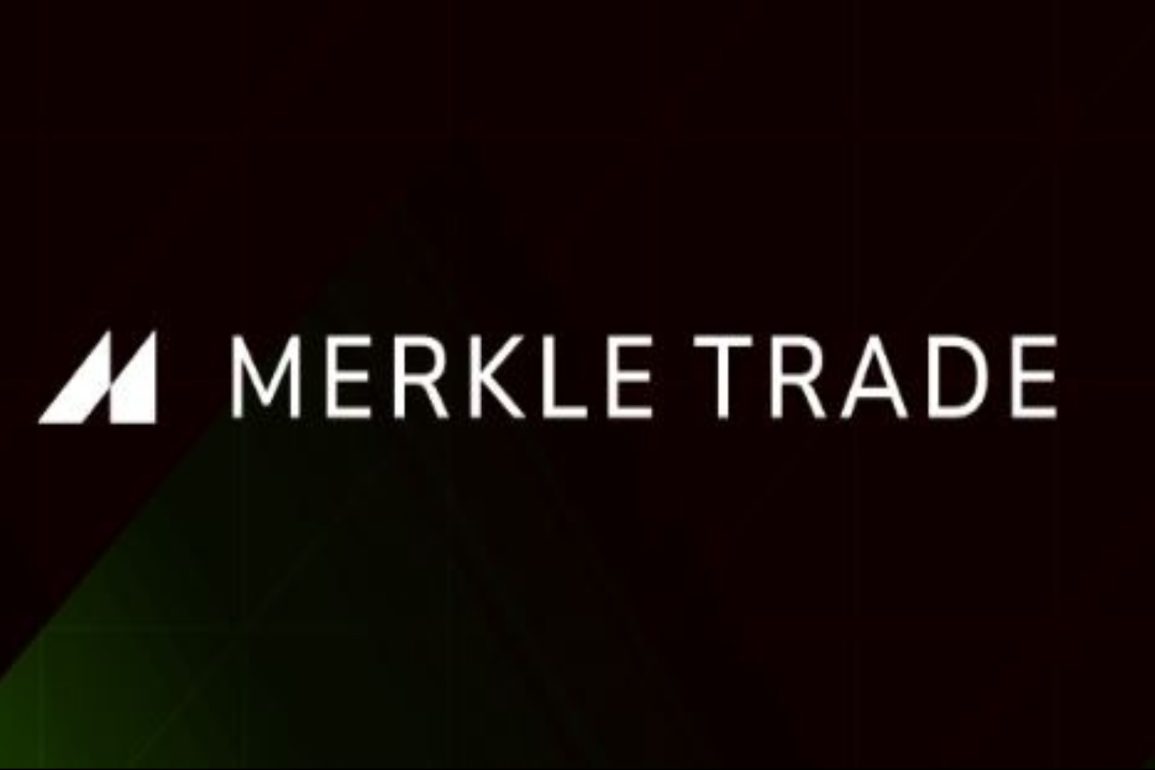- Summary:
- Merkle Trade is the first gamified perpetual futures decentralized exchange (DEX) based on Aptos and provides omnichain support.
Merkle Trade, the first gamified perpetual futures decentralized exchange (DEX) based on Aptos, the secure, scalable and feature-rich Layer-1 blockchain, is introducing its Token Generation Event (TGE) Sequence, uniquely featuring both Genesis Staking and a Liquidity Bootstrapping Auction (LBA). Backed by prominent investors like Hashed and Arrington Capital, Merkle Trade is building off the success of Genesis Staking that began July 25th, to launch its LBA running from August 29th to September 5th.
The LBA will offer early users exclusive USDC rewards for staking for an extended period. Merkle Trade differentiates from other perpetual DEXes with its focus on accessible and enjoyable trading for everyone, including casual traders. Users can start trading perpetual futures with as little as $2 in collateral, while enjoying gas-free transactions and a seamless user experience with order execution that doesn’t require constant signatures (i.e. 1-click trading). Its focus on user-friendly features has driven rapid growth, with Merkle Trade surpassing $12.9 billion in cumulative trading volume and attracting over 124,500 traders while becoming one of the top fee-generating protocols on Aptos.
Building off this traction, the project has launched a unique Token Generation Event (TGE) Sequence, introducing Genesis Staking and the Liquidity Bootstrapping Auction (LBA) as different ways for users to engage with the platform. These options are tailored to benefit both existing users and newcomers to provide diverse strategies to secure MKL tokens, manage positions, and earn additional rewards.
Genesis Staking allows preMKL holders to retain their MKL tokens while earning USDC rewards. These rewards are sourced from a portion of the protocol’s revenue and include access to a special reward pool with up to $200,000 in additional benefits. An impressive milestone has been reached with over 3 million preMKL tokens staked for an average duration of more than 20 weeks, accounting for over 22% of the circulating supply at the time of the token launch.
Liquidity Bootstrapping Auction (LBA) offers an opportunity for both existing users and newcomers to deposit USDC and/or preMKL over a 7-day period, during which the ratio between the two assets will establish the initial launch price of the MKL token. In return, participants receive MKL-USDC LP tokens, which come with dual rewards, including a share of 1% of the total MKL supply and trading fees generated by the pool.
Participants are encouraged to carefully evaluate their financial goals and the unique benefits of each option within the TGE Sequence. Both Genesis Staking and the LBA are designed to offer valuable opportunities, allowing users to select the path that best aligns with their individual objectives. To assist in making informed decisions, the team has provided an $MKL TGE Cheatsheet, offering clear and concise guidance on navigating these options.
For more details and updates on how to participate in the LBA, users are encouraged to stay tuned to Merkle Trade’s official channels (X, Discord, dApp).
About Merkle Trade
Merkle Trade is the first gamified perpetual futures decentralized exchange (DEX) based on Aptos. It provides omnichain support, including EVM wallet integration via LayerZero. Backed by prominent investors like Hashed and Arrington Capital, Merkle Trade uniquely combines a high-performance, secure perpetual DEX with the engaging, social elements of popular online and RPG games. Believing that making directional bets on volatile assets like crypto should be fun for all, the platform has significantly lowered barriers to entry for crypto asset trading.
About Aptos Network
Aptos is the secure, scalable, and feature-rich L1 blockchain of choice for both developers and users—delivering the best performance, the highest throughput, and lowest latency. Aptos is the first blockchain to use the Move programming language, and is designed with simplicity in mind for the best builder experience. Aptos is the top choice for next-gen use cases, real-world applications, and the millions of users that come with them. If it’s happening in Web3, it’s happening on Aptos.


